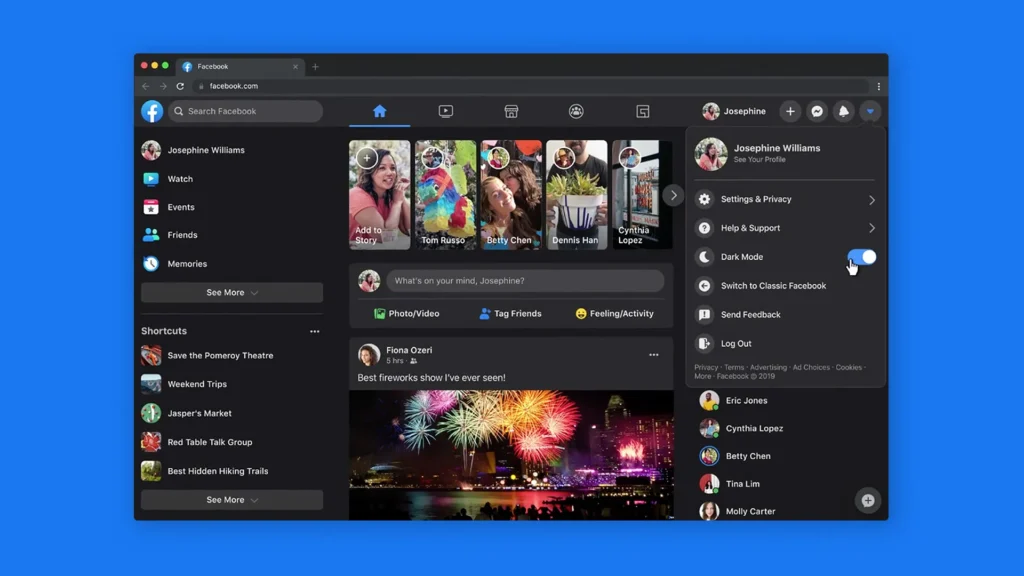How Facebook Became a Global Social Media Giant: Key Strategies and Turning Points

How Facebook Became a Global Social Media Giant: Key Strategies and Turning Points. When Facebook launched in 2004, it was just another social networking site in a sea of online communities. Yet, in less than two decades, it transformed into a global phenomenon, redefining how billions of people connect, communicate, and consume content. But how did Facebook achieve this meteoric rise? The journey of Facebook is one of authenticity, strategic marketing, resilience, and constant innovation. Here’s a closer look at the key milestones, challenges, and strategies that fueled its success.
The Humble Beginnings: Authenticity and Early Adoption
Mark Zuckerberg and his co-founders launched Facebook from a Harvard dorm room with a clear purpose: to create an exclusive online network for Harvard students. This exclusivity created an air of prestige, making students eager to join. By expanding gradually to other Ivy League schools and then to universities worldwide, Facebook built its foundation on organic growth and word-of-mouth marketing. The key lesson here? Building a brand with a focused, niche audience first can establish credibility and demand before scaling up.

Strategic Expansion: Scaling with Precision
Unlike many tech startups that chase rapid expansion from the outset, Facebook took a calculated approach. It first dominated the college market before opening up to the general public in 2006. This measured expansion strategy allowed Facebook to refine its product, ensure a seamless user experience, and maintain its aspirational appeal. For entrepreneurs, this underscores the importance of scaling with strategy rather than haste.
Innovation as a Growth Driver
One of Facebook’s most powerful weapons has been its ability to innovate and adapt. The introduction of the News Feed in 2006 was met with backlash, but Facebook persisted, knowing that curating personalized content would enhance user engagement. Later, acquiring Instagram (2012) and WhatsApp (2014) showcased Facebook’s ability to identify and integrate emerging trends rather than fight them. The lesson? Growth often comes from embracing change and being proactive in acquiring or building features that align with market shifts.

Overcoming Challenges: Resilience in the Face of Controversy
Facebook has faced significant challenges, from privacy concerns and data scandals to regulatory scrutiny. The Cambridge Analytica scandal in 2018 shook public trust, forcing the company to make transparency and user control a priority. Instead of crumbling under pressure, Facebook pivoted, investing in better security measures and shifting towards privacy-focused features. This resilience demonstrates that setbacks can be growth catalysts if brands are willing to evolve and address user concerns head-on.
Rebranding to Meta: A Bold New Vision
In 2021, Facebook rebranded as Meta, reflecting its shift toward the metaverse and next-generation digital experiences. This strategic move signaled the company’s ambition beyond social media, focusing on virtual and augmented reality innovations. The transition to Meta was aimed at positioning itself at the forefront of the future internet landscape. For entrepreneurs, this highlights the importance of adaptability and long-term vision when evolving a brand.

Monetization and Strategic Marketing: The Business Model Behind the Brand
Facebook’s business model transformed the advertising industry. By leveraging user data, it offered targeted advertising with unmatched precision. This not only attracted businesses but also positioned Facebook as an indispensable marketing tool. Additionally, its freemium model ensured accessibility while generating revenue through ads, making social media marketing a necessity for brands worldwide. Entrepreneurs can take a page from Facebook’s playbook by leveraging data-driven insights to refine their own marketing strategies.
Global Dominance and Future Expansion
Facebook’s expansion has been relentless, entering markets across the globe and adapting its platform to suit different demographics. The launch of Facebook Lite in 2015 catered to users in regions with slower internet speeds, while investments in virtual reality (Oculus, acquired in 2014) and the metaverse signal its long-term vision. The takeaway? True brand longevity comes from not just serving existing markets but also anticipating future trends and technology shifts.

Lessons for Aspiring Entrepreneurs
- Start with a niche audience: Facebook’s initial exclusivity helped it build credibility before scaling.
- Scale strategically: Gradual expansion allowed it to refine its product and sustain growth.
- Embrace innovation: Staying ahead of market trends and acquiring emerging competitors fueled its dominance.
- Resilience is key: Navigating challenges and controversies strengthened the brand.
- Leverage data-driven marketing: Understanding user behavior enabled Facebook to revolutionize advertising.
- Think long-term: Investments in new technologies ensure continuous relevance and expansion.
Facebook’s journey from a college networking site to a global social media powerhouse, and its rebranding to Meta, is a testament to the power of strategic growth, adaptability, and innovation. By applying these principles, entrepreneurs can craft their own paths to building impactful, enduring brands.


